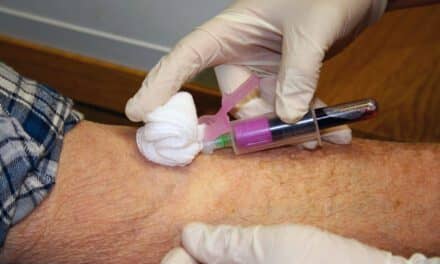Neurocode USA, a specialized clinical lab that offers world-class testing solutions for neurological disorders, announced the clinical launch of ALZpath Dx, a novel blood test that can be used in the screening, diagnosis, and monitoring of Alzheimer’s disease (AD) based on circulating level of pTau217 in the blood.
Neurocode is the first laboratory in the United States to make this test available as a laboratory-developed test (LDT) for clinical diagnostic use, clinical trials, and other research purposes.
Neurocode’s assay measures levels of phosphorylated tau at position 217 (pTau217). pTau217 is widely considered to be the leading transformative blood-based biomarker that will enable earlier and more accurate Alzheimer’s diagnosis, better stratification of patients for clinical trials, improved patient care and treatment, and greater diagnostic specificity and sensitivity than other blood-based biomarkers. The test is powered by the Simoa (single-molecule assay) technology of Quanterix Corp.
“The clinical availability of the ALZpath Dx test is significant as it provides a more scalable, more accessible, and less invasive option for the diagnosis of patients in earlier stages of the disease, when recently-approved disease-modifying therapies are most beneficial. Patients and their families gain unprecedented ease of access to early and accurate diagnosis and the opportunity for timely treatment,” says Ryan Fortna, MD PhD, medical director of Neurocode. “Additionally, this blood-based test is as accurate as brain imaging or CSF testing, but is faster, more accessible, less expensive, and less invasive, and it does not require radiation exposure.”
Recently, ALZpath announced the results of an international peer-reviewed study published in JAMA Neurology, evaluating the performance of its ALZpath Dx assay in a 786-patient study. The findings demonstrated that the ultra-sensitive immunoassay showed high diagnostic accuracy in identifying elevated amyloid in the brain across all cohorts. The accuracy was significantly higher than other blood-based biomarker combinations and equivalent to cerebrospinal fluid (spinal tap) biomarkers. It demonstrated high accuracy in predicting AD brain pathologies (amyloid-beta plaques and tau tangles) as identified by positron emission tomography (PET) imaging, the current gold standard diagnostic technique.
Further reading: Promising Pathways to Simplified Alzheimer’s Diagnosis Identified
Neurocode offers the ALZpath Dx test for clinical use within a CAP-accredited, CLIA-certified facility. Their validation study used over 1,700 samples with amyloid PET imaging and 150 subjects with post-mortem (autopsy) pathology, demonstrating an area under the curve (AUC) of 0.94, significantly exceeding the 90% accuracy threshold for a standalone diagnostic AD test proposed by the Alzheimer’s Association Workgroup in their 2023 draft proposal for the Revised Criteria for Diagnosis and Staging of Alzheimer’s Disease.
“The availability of ALZpath Dx in our first partner laboratory marks a significant milestone in making this test available for clinical use, and we are thrilled to collaborate with Neurocode,” says Andreas Jeromin, PhD, chief scientific officer of ALZpath. “Looking ahead, ALZpath is planning to expand our network to help patients, their families, health care providers and pharmaceutical/biotech companies, and to improve care and management of a disease that devastates so many lives.”
The test must be ordered by a healthcare provider. Sample collection kits are provided to facilitate blood collection and shipping to Neurocode by an affiliated phlebotomy site.





